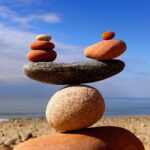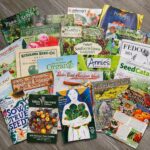National Be On-Purpose Month is marked throughout January. This holiday encourages us to start the new year by putting our good intentions into action, both in our personal and professional spheres of life. It’s a time of trading confusion for clarity as we integrate our lives with more purpose and meaning. It’s critical to see and experience the past, as difficult as it may be, in order to see the need for change in our lives as we establish our goals for the future and work to be more purposeful about who we want to be. If you don’t know yet what your purpose is, start by figuring out what you are passionate about. Those things that give you a burst of joy when you think about them, make you come alive. They will help point you to your purpose. Following your passions, living by your set of beliefs and values, and living in the moment are a few ways to ensure you live each day with purpose.
History of National Be On-Purpose Month
Studies by Edwin A. Locke and his colleagues have proven that specific and ambitious goals create more success in performance improvement compared to easy or vague goals. Specific, time-constrained, and difficult goals give us the best results.
The theory developed by Locke and his peers states that the simplest, most direct explanation of why some people perform better than others is because of the variation in their performance goals. In general, the higher the goal, the higher the performance. Locke derived his idea of goal-setting from Aristotle’s form of final causality, which states that purpose can cause people to take action. Locke began studying the impact that goals have on human activity. Locke developed the goal-setting theory for over 25 years based on accumulated evidence from around 400 studies that included field and laboratory settings. One of the theory’s main arguments is that, barring differences in ability, specific and difficult-to-attain goals tend to increase performance much more than easy goals, no goals, or simply telling people to “do their best.” That is why some individuals outperform others — because they have different goals. Goals can be made more specific by quantification (making them measurable) or enumeration (defining the tasks that define the achievement of the goal).
National Be On-Purpose Month gives us the motivation we need to set specific goals and stick to them. There’s no better time than the beginning of a new year to step back and reflect on our lives. Doing this helps us realize the distractions that are blocking our path so we can weed them out.
National Be On-Purpose Month timeline
Cecil Alec Mace carries out the first empirical studies on goal setting.
Edwin A. Locke begins to investigate goal-setting.
Locke publishes his first article, “Toward a Theory of Task Motivation and Incentives.”
A research study on goals finds that people who write them down achieve them at a significantly higher rate than those who don’t.
National Be On-Purpose Month FAQs
Can goal-setting be harmful?
There is some evidence of potentially harmful side effects for individuals and organizations when they become too fixated on performance goals.
How does framing affect the achievement of goals?
When someone feels intimidated by a high goal, they tend to perform worse than people who view the goal as a challenge.
What are the two types of goals?
Goals are broadly divided into learning goals and performance goals.
National Be On-Purpose Month Activities
Monitor what you say and think
Watch what and who you complain about. Complaining allows us to be victims of our life situations. It gives us excuses for why we are where we are, instead of taking charge.
Get a purpose buddy
Making changes in your life can feel overwhelming when you think you’re alone. Find a friend, a colleague, a coach, a mentor, or anyone you trust to cheer you on through the process of change.
Learn something new
Increasing your knowledge gives you a sense of accomplishment and purpose. Whether it’s for fun or career advancement, taking up something new keeps your life feeling on track.
5 Facts About Goals That You Need To Know
The long study of goals
Edwin Locke continued researching goal setting for more than 30 years after starting in the mid-1960s.
Goals develop persistence
Goals make people more willing to work through setbacks.
Staying flexible is good
In certain situations, maintaining flexibility with goals helps us avoid undue stress about things not going as we expected.
A different kind of workplace goal
Some companies require employees to set a non-work-related goal to maintain work-life balance, and managers help team members stay on track with those goals.
It helps the differently abled
Training in setting goals has been linked to higher levels of performance in adults and children with mild to severe intellectual disabilities.
Why We Love National Be On-Purpose Month
A chance for self-improvement
National Be On-Purpose Month gives us the push to use our time well and put our energy toward things that truly matter. It’s a time to take an honest look at how we’re living and make improvements where needed.
It keeps us on track
Sticking to our New Year resolutions is often challenging. However, having a month dedicated to staying on purpose reminds us of the commitments we’ve made.
It starts the year off right
Being on purpose is a fantastic way to start off the year. Beginning on a positive note sets the tone for having a great year.
National Be On-Purpose Month dates
| Year | Date | Day |
|---|---|---|
| 2025 | January 1 | Wednesday |
| 2026 | January 1 | Thursday |
| 2027 | January 1 | Friday |
| 2028 | January 1 | Saturday |
| 2029 | January 1 | Monday |
















































































































